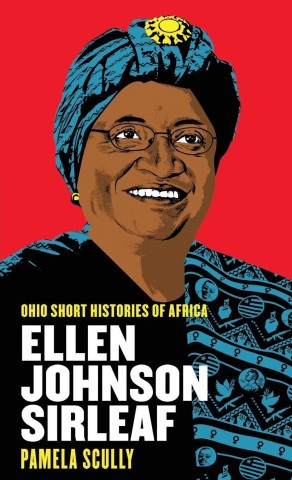Ohio University Press has a series of "Short Histories of Africa". I recently decided to pick up most of the collection for potential use as reading materials for classes. This post covers "Ellen Johnson Sirleaf" (2016), by Pamela Scully. One of the rants that often appear in my classes and in assignment feedback comments relate to attention to detail. Small mistakes and sloppy work put the entire effort into question (Yes, everyone makes mistakes, including in published works). On the first page of the Introduction this book opens with one: "three women from Africa, two of them relatively unknown activists at the time. The committee presented the award to Ellen Johnson Sirleaf (president of Liberia), Leymah Gbowee (Liberia), and Tawakkol Karman (Yemen)". Yemen is not in Africa. The author of this book is a Professor African Studies at Emory University. Tawakkol was born and raised in Yemen, studied in Yemen, and holds Yemeni (and Turkish) citizenship. She was the first Arab woman to win the Nobel Peace Prize. As the author is also a professor of Women's, Gender, and Sexuality Studies, these details should matter. I had to read these lines several times to make sure I was not missing something. I looked at three book reviews (none mentioned this point). This does not start off the book well. As I say in class, that makes this entire work questionable (other reviews have offered more Liberia-specific critiques). Of this series, this is not one I would use. Some notes:
"Christianity was a marker of civilized status and upward mobility in the Monrovia in which Sirleaf grew up. Discrimination against Muslims, who were not allowed to hold government posts, contributed to the movement of young people to Christianity. During this era, most Muslims in Monrovia were uneducated. Conversion to Christianity and education happened at the same time in schools. Although Christianity was an essential ingredient for being part of the Americo-Liberian or "civilized" community, it was membership in particular churches that was crucial." (p. 26)
"After working with the World Bank, she concluded that although foreign investment and development monies came with all sorts of restrictions and created difficult relationships between governments and funders, such investments were crucial, and that the lack of capacity in many countries of the Global South meant that countries had to depend on the expertise of people from the Global North. As we will see, this conviction became central to her decisions in her first term as president of Liberia. Sirleaf's orientation toward neoliberalism with its emphasis on governance and investment rather than social justice and transformation was one of the reasons for her success in mobilizing support for Liberia." (p. 39)

